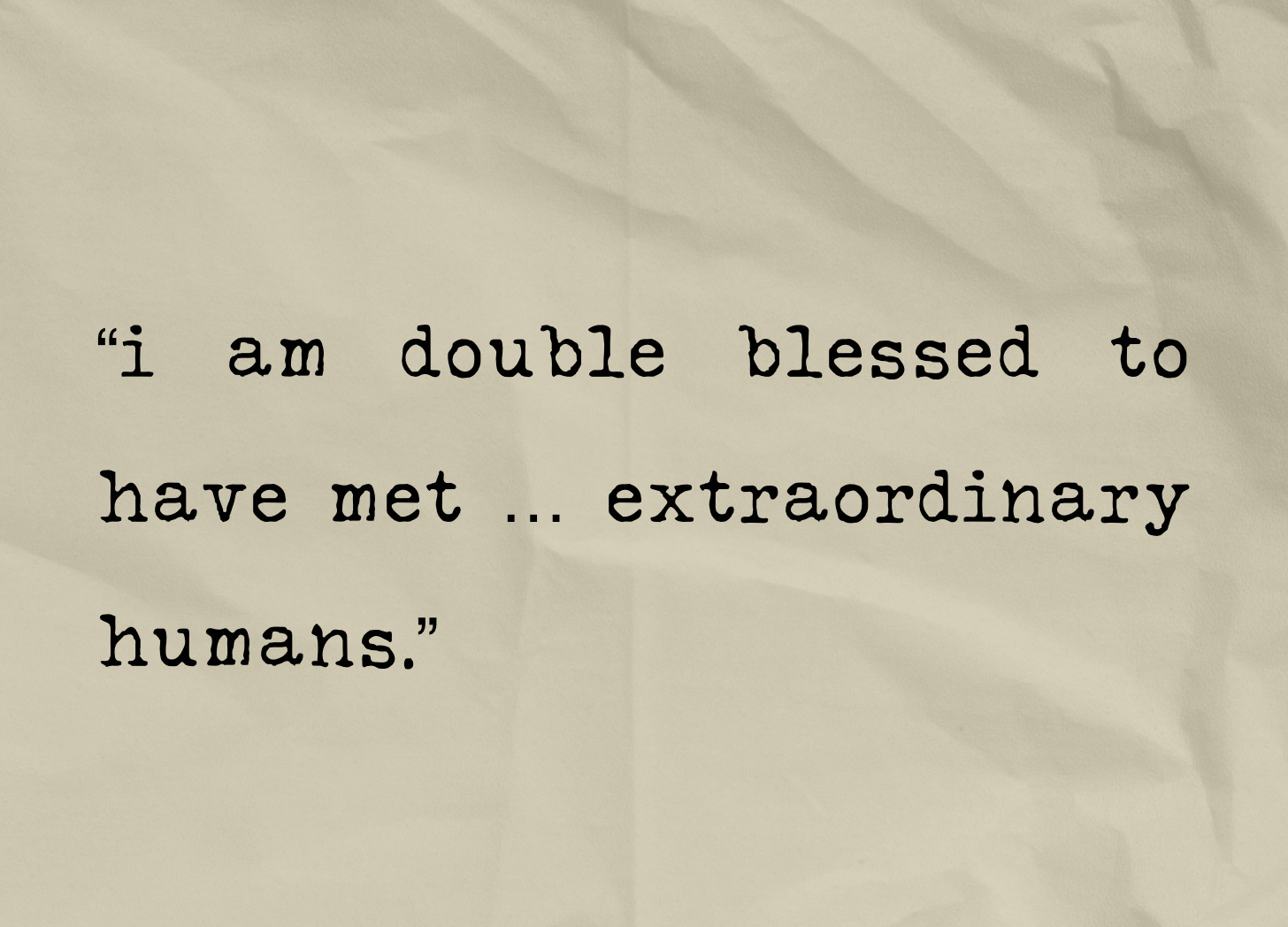Wit and Wisdom
by Beth Broderick
How Walta found her way to us is anybody’s guess. MOMENTUM had been in existence for the better part of two years before she became a client. Walta was in the middle of transitioning when an AIDS diagnosis made a mockery of all of her plans, as it did for the plans of any and all who received one.
Life expectancy was six to eight months once an opportunistic infection got the immune disorder rolling. The only viable plan was made with one’s doctors in the hope of survival. AIDS mostly affected young men and women. When told they had been infected, not one of them believed that they might actually die. A twenty-year-old just cannot grasp the concept.
Peter Avitabile and I co-founded the program, which would become known as MOMENTUM, with a handful of other volunteers in December of 1984. It would be a minute before doctors knew what to call the phenomenon of “Gay Men’s Cancer,” and it took years before we decided upon a name for our organization. We were all flying blind.
Our program offered a sit-down dinner in the basement of midtown Manhattan’s St. Peter’s Church. We had volunteer chefs who cooked in the big industrial kitchen there, and folks like me who traversed the city scrounging up donations of food and other necessities. I always visited a bunch of guys in the wholesale vegetable district on my rounds. They did not really understand the crisis, but they knew the “church lady” as they called me, said young people were sick and hungry. That was enough. They gave generously. They gave every time.
Isolation was a huge problem for folks living with what we all now call HIV/AIDS. So the meal was a chance to convene with others; to be a part of the world. There was almost always entertainment as many Broadway performers lent their voices to our evenings. This thrilled the folks who came to dine and, in the middle of such heartbreak, it was a huge gift to all of us. The night that the great Barbara Cook came to sing for us, the room was packed with clients, all of them emaciated, deeply unwell, many clutching flowers they had brought to give her. I weep to this day remembering her kindness after the show as she sat with each person one by one, accepting their flowers and giving them a piece of her heart.
She was a hero, one of the many I encountered then. I am double blessed to have met more than my fair share of extraordinary humans.
We also had a makeshift “free clothing store”. People with the disease could lose as many as forty pounds in just a few weeks, which left them with nothing to wear. They could sort through donated items–some new, but most gently-used–and find new options. In truth, most of the items were donated by former clients who had passed on and wanted to help out those they left behind.
We had a “free grocery store” too. We cadged canned goods and other items from a diverse group of resources. City Harvest was our most reliable. They provided the bulk of our donations, but there was also considerable support from other food banks around the city. Food scarcity was a huge problem, as folks spent down their meager SSI benefits on medications which offered a whisper of hope, but which were not yet approved by Medicare or Medicaid. Most of our clients were financially strapped and desperately needed nutrition.
Walta became notorious for ransacking the tuna fish section of the “grocery store”. We once caught her trying to walk away with dozens and dozens of cans. We later learned that Walta came from a very wealthy family and could have simply called home for cash, but she resisted that with every fiber of her being. I am sure she had her reasons.
She had devised a plan to cadge the tuna and sell the contraband to buy drugs with the money. (Peter and I were continually shocked by the number of folks we met who had made a habit of shooting substances into their veins). Walta was a charming gal; it was impossible to get mad at her. But we had to get firm. We talked her into returning the bulk of her booty and thereafter a volunteer was assigned to “shop” with her, foiling any chance of another great tinned-fish heist.
OFF-SCRIPT.
I was spending every spare moment at the church with Peter as we frantically wrote grant proposals and searched every city system for support, but I did other jobs on the side as there was rent to pay. I had no money and mostly lived off cans of soup and corned beef hash, and Jolly Green Giant veggies along with our clients and that was just fine. Peter had a partner who supported him, but neither of us had much and we did not care. We were in the fight. It was all that mattered. The number of people who needed our help was growing fast, and we were trying to keep up.
I was no longer actively pursuing an acting career, but I had a commercial agent who got me the occasional voice-over audition. At one point I got hella lucky and snagged a “Coppertone” suntan lotion ad that kept me afloat for a time.
That agent somehow got me out to read for a role in a dinner-theater drama that was planned to debut in the Village. These sorts of entertainments were very popular back then. It was a live show where we interacted with the audience and ate dinner with them, and of course someone was murdered along the way, adding to the drama of it all. The whole evening culminated with the confrontation of and confession by the killer. If I remember correctly, we actors took turns being the guilty party.
Opening night was black tie, and we were excited to have a sold out show. I was backstage in the actors’ holding/changing area, which was just one big room, the length of which was lined with old tables facing chipped mirror pieces. A few were accented with bare lightbulbs suspended by bits of string to assist with make-up application. It was “half hour,” thirty minutes until the show would begin, when the producers rushed in.
“Beth, somebody named Walta is outside greeting the guests. He is holding a picture of you and telling people that you are in the center of a shrine at home with candles and stuff. Seems nuts and he looks a mess. You have to get him out of here.”
I guess Walta was technically male though it was certainly not her chosen identity. Folks were not as careful about pronouns then. I quickly changed into street wear and ran to the front of the building where our patrons were gathering outside. Walta was there. Rail thin, wearing short shorts with sky high heels and a ratty wife-beater tank top, she was, in truth, a sight. She had not bathed in a while and her hair was a wild, tangled mess. Many gay people were afraid to go outside. The fear of AIDS and animosity toward them was daunting, but Walta did not give a tinker’s damn about such things. She threw her arms around me.
“Dahhling I am so excited for your show!! I am just telling everyone how wonderful you are!”
I thanked her for her support. She was such a dear; I did not have the heart to tell her that she was disrupting the event. I ran to a pay phone and dialed Peter at home. By some miracle he was there and picked up the receiver. There were no cell phones then, no texting or any other way of communicating. The person you wanted to reach had to be home and in the mood to be reached.
“Go back inside Motha.” He called me Mother but his heavy Long Island accent changed the “e” to an “a” and left off the “r” entirely. “I will handle Walta. Go do your show.”
I ran back to the dressing room and leapt into my glamorous gown. Needless to say, all eyes were on me as my fellow cast-mates wondered just what in the hell I was up to and what on earth was happening outside.
The producers came back five minutes later to say that Walta had left, and everything was back to normal. Peter had arrived and offered to take Walta to the supermarket, where he would buy her as much tuna as she could carry.
Walta was one of a kind. She was brash and brilliant and naughty as all get out, but she had a huge heart and always meant well. I loved her.
The show went on and was a middling success. We ran on weekends and the dinner part of it provided the most nutrition I had consumed in years, though when it ended, it would be a good while before I ate another piece of salmon. One of my fellow actors, a woman named Sharon McNight, was a big AIDS activist in her own right. She became a treasured part of our program, lending her beautiful singing voice to our dinners and patiently riding around the city with me in a borrowed van, collecting clothes and groceries.
I would briefly date the handsome man who played opposite me, but he was terrified by the fact that I worked with folks who were sick and dying. Once, after kissing me, he burst into tears and exclaimed that he was afraid I would give him the disease. I hugged him tight and told him the truth. I could not guarantee that he would not die. I did not believe–had never thought–that the virus was airborne, but no one knew for sure. I wished him well.
Walta left the planet a few short months later. Her family actually contacted us and showered us with their gratitude for the love and care we had given her. They also made a donation in her honor. We were very touched by the gesture. I believe she would have been too, though she may have preferred to be loved by them for just being herself in her lifetime.
We kept fighting, and beautiful young folks with everything to live for kept dying, but we never gave up. Things did eventually get better, and real progress has been made, but I would add, at an immeasurable human cost. We could have—should have—done better. Our leaders could have—should have—done more from the start. I know from first-hand experience how important it is to choose them wisely.
This is a challenging time for every American. Let’s keep believing in each other, keep trusting that Walta and all of the other angels are up there guiding the forces around us toward the good that resides in the hearts of most men and women. Choose love. Always.
On we go …
We extend our heartfelt gratitude to our valued subscribers whose support makes the publication of Wit and Wisdom possible. Thank you!

















Share this post